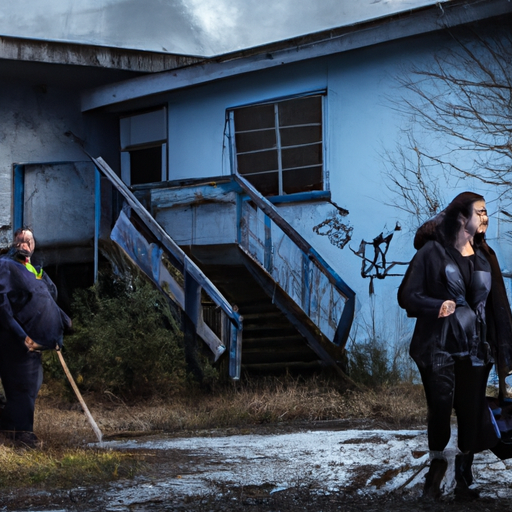A Deeper Look: Funding and the Opioid Crisis on First Nations
Welcome to today’s blog where we will delve into a concerning article posted on The Spec on the current state of the opioid crisis within Canada’s First Nations communities. Herein, we will examine the effects of this crisis and the measures taken to alleviate the situation.
Funding a Barrier to Ending the Opioid Crisis
The article underscores a cogent point concerning an under-discussed aspect of the opioid crisis. Notably, it suggests that funding may be a significant roadblock to ending the opioid crisis ravaging the First Nations communities in Canada. Indeed, the opioid crisis has precipitated untold effects that necessitate immediate attention and resources.
Effects of the Opioid Crisis on First Nations
The impact of the opioid crisis on these communities is convoluted, far-reaching, and devastating. To fully comprehend its scope, we must not only focus on those directly addicted to opioids but also on the broader knock-on effects that ripple through these communities.
- Increase in crime: Due to the insatiable pull of opioid addiction, many individuals are driven towards crime, particularly property offenses, to fund their dependence. This rise in crime leads to social instability and insecurity.
- Rise in homelessness: Sufferers of opioid addiction often experience a decline in financial stability, leading to an uptick in homelessness within these communities.
- Familial break-down: The effects of addiction often entail the disintegration of familial structures, which, in turn, perpetuates a cycle of addiction, poverty, and homelessness.
The Naloxone Paradox
In a bid to combat mounting opioid overdoses, Naloxone — a drug that reverses opioid overdoses — has been increasingly distributed across First Nations communities. However, it’s worth noting that while Naloxone is a vital first step, it is not a holistic solution to opioid addiction, an affliction that brings with it an array of social ills, as highlighted earlier. Adequate funding such as that proposed in the opioid class action settlement is crucial to buttress efforts such as these.
The Opioid Class Action and First Nations
The opioid class action, which recently returned a hefty settlement, promises a significant boost to resources in combating this crisis. Lamentably, however, it appears the funding may not suffciently trickle down to where it’s most urgently needed — within our First Nations communities. Factors such as administrative red tape, political reluctance, and legal wrangling could potentially impede the effective allocation of these funds.
Push for Funding Transparency
There is an ongoing appeal to ensure greater transparency surrounding how these funds will be distributed, especially from the opioid class action. Appropriate allocation of these funds across First Nations communities would be a decisive step in tackling the opioid crisis.
Conclusion
In this blog post, we dissected an article from The Spec, which outlined pressing concerns regarding funding as a potential roadblock to ending the opioid crisis within First Nations communities. We’ve seen how sustained criminal activity, rising rates of homelessness, and the disintegration of families have been harsh effects of this crisis.
While the deployment of Naloxone is an important first move, we’ve highlighted the need for a more holistic approach to this crisis which includes adequate funding and solution-based strategies. Alarmingly, however, it seems these urgently needed funds might not reach communities where it is most needed. An appeal for transparency and proper allocation of these resources have been flagged, as the money from the opioid class action could help provide the extensive help required.
Ultimately, these problems and potential solutions demand our collective attention and immediate action. The opioid crisis has devastating impacts not just on individuals within First Nations communities, but it also perpetuates a destructive cycle that the next generation will inherit. Let this blog post serve as a beacon to call for more sweeping efforts to combat this crisis.


